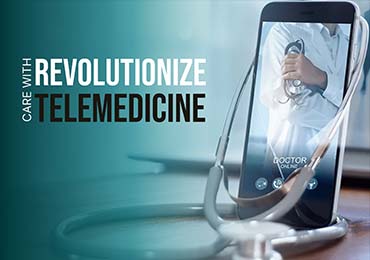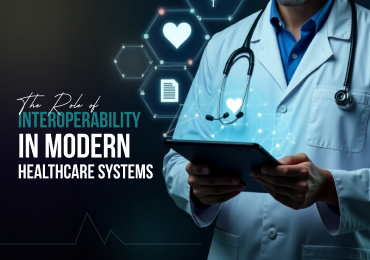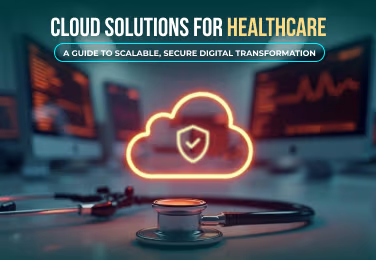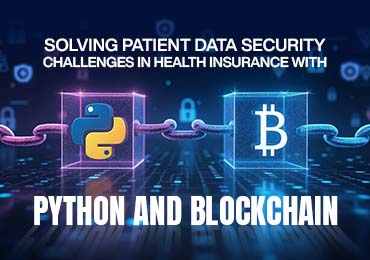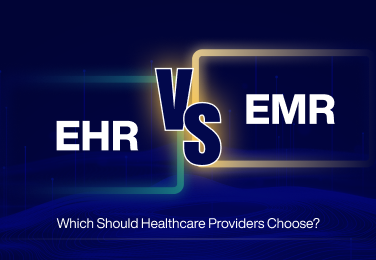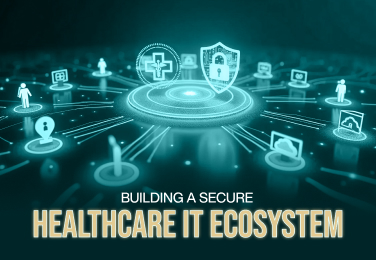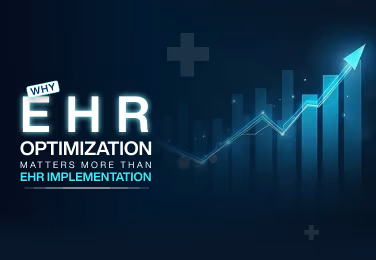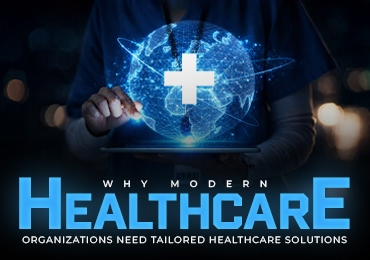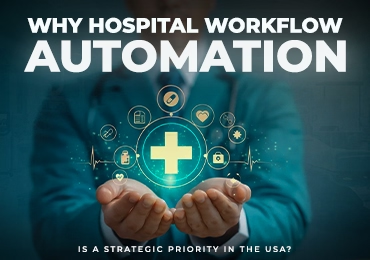Revolutionize Care with Telemedicine
In an era where digital-first solutions are reshaping the healthcare landscape, telemedicine has emerged as a vital pillar of modern care delivery. No longer confined to emergency measures or rural outreach, virtual healthcare is now a mainstream expectation—driven by changing patient behavior, technology innovations, and regulatory shifts. For healthcare providers across the United States, the question is no longer if they should adopt telemedicine, but how to do it right—safely, strategically, and at scale. At Aryabh Consulting, we specialize in delivering healthcare-specific IT solutions that include user-centric telemedicine platforms, remote IT infrastructure management, software integration , and compliance-first system design —all tailored to the evolving needs of medical organizations. The Rise of Telemedicine: What’s Driving the Surge? Telemedicine isn’t just a temporary trend—it’s a fundamental transformation. Here’s what’s fueling its unprecedented growth: COVID-19 as a Catalyst The global pandemic fast-tracked the adoption of remote care. Healthcare providers turned to telemedicine to: Maintain care continuity while reducing exposure risk Treat non-emergency cases outside hospital settings Ensure chronic disease management during lockdowns According to McKinsey, telehealth usage was 38 times higher in 2021 than before the pandemic. Shift in Patient Expectations Today’s patients are digitally literate and demand: On-demand consultations Flexible appointment scheduling Access to care from home, work, or on the move Convenience is now a competitive differentiator. Maturity of Digital Tools Tech advancements have made virtual care viable and efficient: Secure, high-quality video conferencing Real-time health data sharing via wearables Cloud-based EHR systems with remote access Government & Insurance Backing Policymakers and payers have aligned to support telehealth: Relaxed state licensure laws for cross-border care Expanded Medicare and Medicaid reimbursement Looser restrictions under HIPAA during public emergencies These trends are unlikely to reverse—telemedicine is here to stay. Building a Sustainable Telemedicine Ecosystem: What Providers Must Know Implementing telemedicine goes beyond simply installing a video call function. It requires thoughtful planning, secure infrastructure, and end-to-end integration to truly succeed. Let’s break down the key areas that healthcare providers need to focus on: 1. Data Privacy, Security & HIPAA Compliance Data security is non-negotiable in healthcare IT. With rising cyber threats and stricter enforcement of HIPAA rules, providers must ensure: End-to-end encryption for all video and messaging tools Secure cloud storage with multi-factor authentication Role-based access controls to restrict sensitive data access Comprehensive audit trails for every patient interaction A data breach costs healthcare organizations $10.93 million per incident on average (IBM, 2023). How Aryabh Helps: Our platforms are built with HIPAA compliance baked in—every feature, integration, and access point meets rigorous data governance standards. 2. Integration with Existing Workflows and Systems For telemedicine to feel seamless, it must integrate with your current tools and processes: Electronic Health Records (EHR) systems like Epic, Cerner, or AthenaHealth Billing platforms for insurance claims and co-pay processing Patient scheduling systems with real-time appointment syncing Clinical documentation and note-taking tools This integration ensures efficiency, reduces administrative burden, and prevents medical errors. 3. User Experience (UX) That Builds Trust Your telemedicine platform must be intuitive and responsive for both providers and patients. No complex logins or downloads Mobile optimization for Android/iOS Clear video/audio quality on all devices Real-time status updates and appointment reminders Accessible UI/UX for elderly or non-tech-savvy users Studies show that 40% of patients won’t return to a telehealth provider after a poor experience. Aryabh’s Approach: We design human-centric platforms that prioritize clarity, speed, and simplicity across all devices. 4. Scalability with Remote Support Your telemedicine infrastructure should scale with patient volume and operational growth. You’ll need: Cloud architecture for flexibility and uptime Load balancing and redundancy for large-scale operations 24/7 remote monitoring and incident response Whether you’re a solo practice or a hospital network, telemedicine growth should not create IT bottlenecks. With Aryabh’s Remote IT Services, we proactively manage system uptime, performance, and tech support—so you can focus on care. 5. Customization for Your Organization’s Unique Needs Generic, off-the-shelf solutions often lack the adaptability needed for specialized care. Healthcare organizations differ in: Clinical workflows Branding and patient engagement strategies Specialties (e.g., psychiatry vs. pediatrics vs. orthopedics) Our user-centric solutions include: White-labeled platforms matching your branding Role-specific dashboards for different staff levels Flexible modules for intake forms, video consults, e-prescriptions, and follow-ups With Aryabh’s Remote IT Services, we proactively manage system uptime, performance, and tech support—so you can focus on care. Strategic Takeaways for Healthcare Leaders To thrive in the era of virtual care, healthcare organizations should: Prioritize regulatory compliance and cybersecurity Integrate telemedicine with core systems, not bolt it on Design for user-friendliness across patient demographics Build a scalable tech stack that grows with demand Partner with experienced IT consultants who understand healthcare These trends are unlikely to reverse—telemedicine is here to stay. Ready to Modernize Your Healthcare Services? At Aryabh Consulting, we help healthcare providers build the future of care delivery. Our user-centric healthcare solutions, remote IT infrastructure services, and software integration expertise ensure your telemedicine platform is secure, efficient, and scalable. Let's build a healthcare system that works smarter. Contact Aryabh Consulting today to explore user-centric solutions made for your success. We love to hear from you Contact Us



